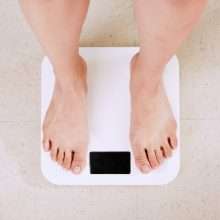8 Ways to Prevent Cavities that are Easy to Apply
Cavities are mouth problems that are often experienced by many people, from children to adults. Keep in mind, teeth have a layer of enamel that protects the tooth surface. This layer can be perforated or eroded which then becomes a route of infection. This condition can also cause pain to bad breath. Therefore, it is important for every individual to know and apply how to prevent cavities.
Prevention of cavities can actually be done by maintaining overall oral health, such as brushing your teeth twice a day. You can read more about tips on preventing cavities through the reviews below.
How to Prevent Cavities
Cavities often cause sufferers to experience toothache to bad breath . Not only that, cavities can also cause infection of the teeth and tooth roots.
To avoid this, you can do a number of ways to prevent cavities as follows.
1. Brush Teeth Routinely
One way to prevent cavities naturally can be done by brushing your teeth regularly. This aims to clean and remove food residue in the mouth that triggers the growth of bacteria that cause cavities.
You are advised to brush your teeth regularly at least 2 times a day, namely after breakfast and before going to bed at night. This toothbrush should be done 30 to 60 minutes after breakfast so that the minerals in the teeth don’t dissolve too. Toothbrush should be done 2 minutes for each session.
2. Use Toothpaste Containing Fluoride
Toothpaste containing fluoride is known to be able to inhibit the growth of bacteria that cause cavities. In addition, the fluoride content can also strengthen tooth enamel so that it is not easily damaged due to eroding of acidic compounds and plaque in the mouth.
3. Limit Consumption of Sweet Foods
Sweet foods tend to stick to the teeth easily. If not cleaned immediately, the bacteria will turn the remnants of sweet food in the teeth into acids which can damage the tooth enamel. This condition causes teeth to be prone to blackening and cavities.
Therefore, it is important to limit consumption of sweet foods as a way to prevent cavities. You are also advised to rinse your mouth and brush your teeth after eating sweet foods to clean food debris that sticks to your teeth.
4. Clean mouth with mouthwash
How to prevent cavities naturally that is no less important is to use mouthwash. Mouthwash is used to clean between the teeth which cannot be reached with a toothbrush. The antiseptic compounds in it can also prevent the growth of bad bacteria in the mouth.
5. Use Dental Floss
In addition to mouthwash, using dental floss or dental floss is also needed to clean food residue that is between the teeth.
However, it is necessary to pay attention to the use of dental floss so as not to cause bleeding gums . Make sure the dental floss is held securely by wrapping the ends around your thumb and forefinger. Then, gently swipe the dental floss between the teeth in a C pattern.
You can use dental floss at least once a day to get optimal results.
6. Consumption of Vegetables and Fruits
Not only being good food for digestion , vegetables and fruit are also known to maintain oral and dental health. This is because vegetables and fruit can increase saliva production which can suppress the growth of bacteria in the mouth.
7. Drink plenty of water
Drinking plenty of water can also be used as a natural way to prevent cavities. Drinking water is useful for cleaning food debris in the mouth which is a favorite place for bacteria that cause cavities to multiply.
Drinking enough water can also increase the production of saliva in the mouth which functions to distribute fluoride evenly to all parts of the teeth.
8. Have your teeth checked by a doctor regularly
One of the causes of cavities is the presence of plaque that has not been cleaned for a long time. Plaque is a soft, sticky layer consisting of food debris and bacteria. If left continuously, this plaque can cause various kinds of oral problems, ranging from tartar to cavities.
Therefore, check your teeth to the doctor every 6 months to remove stubborn plaque that is difficult to clean only with a toothbrush or rinse.



